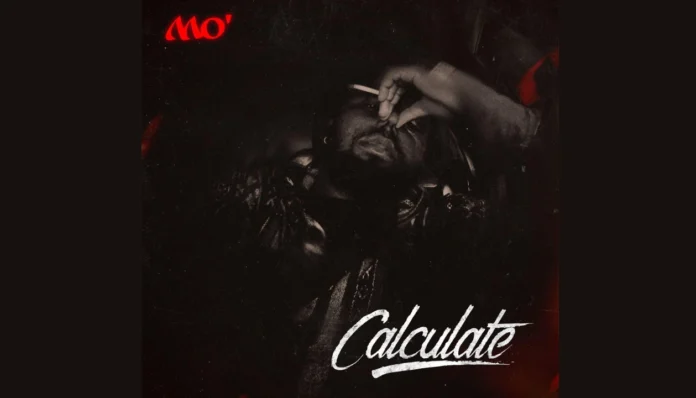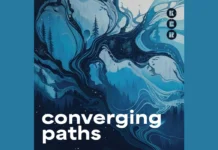A New Chapter Begins
In a world where music can sometimes feel like it’s manufactured instead of created, Uncle Mo is carving his own lane. He’s not chasing trends or feeding the algorithm. He’s doing something far more radical—he’s being himself. With his newest project, often described as a “rebirth,” Uncle Mo isn’t just putting out music; he’s offering a layered, deeply emotional, and globally connected experience. It’s an invitation into his soul, his story, and the soundscape of the African diaspora.
Who Is Uncle Mo?
If you’ve followed international music scenes across Africa, the Caribbean, and the US, chances are you’ve come across Uncle Mo’s name—whether you realized it or not. As a record executive and songwriter, he’s been a key player behind the scenes for years. He’s written for and collaborated with some of the biggest names in Afro-dancehall and reggae, like Ghana’s Stonebwoy and Jamaica’s Real Gyptian. But behind the polished work and executive accolades was an artist waiting to return. Uncle Mo was never just a music businessman. He was always a musician at heart.
The Sound of Many Worlds
What makes Uncle Mo’s music so distinct is how naturally it blends global influences. His sound doesn’t belong to one genre or one country. It’s shaped by his life—raised across different continents, influenced by everything from Afrobeats to gospel, soul to reggae, trap to traditional African percussion. When he talks about his childhood, you hear it: Fela Kuti in the mornings, Bob Marley by lunchtime, and Lauryn Hill or D’Angelo to close the day. These aren’t just musical preferences—they’re parts of his identity, and they echo in every beat and bar of his new music.
Creating from Memory
Uncle Mo calls this new project “memory music,” and it’s easy to see why. He’s not just making songs; he’s unpacking emotion, ancestry, and real-life experience. Every track on this upcoming album is rooted in something lived or deeply felt. One moment, you might hear a song that reflects the tension of straddling two cultures. In the next, you’re pulled into a spiritual meditation that merges West African tradition with gospel soul. The production is equally intentional. Mo worked with musicians and producers across Ghana, Nigeria, Jamaica, the UK, and Canada—not to look diverse, but because the sound demanded that kind of range and truth.
Lyrical Depth and Emotional Honesty
What sets Uncle Mo apart is his commitment to honesty in his writing. He’s not afraid to talk about the hard stuff—burnout, identity crises, spiritual questioning, emotional fatigue. One track, “Foreign Tongue,” contains the haunting line, “I don’t know where I’m from until I’m told I don’t belong.” That hits. It’s a feeling many children of the diaspora know too well. His music doesn’t hide behind metaphor for the sake of it. It speaks clearly, directly, and with feeling. Whether he’s reflecting on love lost or the spiritual weight of ancestral memory, Mo’s lyrics read like pages from a journal, not just lines from a hook.
More Than Music
This project isn’t just an album. It’s a full-circle moment. Uncle Mo is using this release as a way to reintroduce himself—not just to the industry, but to the people. He’s stepping away from executive duties to focus on art. He’s building platforms to support other artist-executives. He’s launching an incubator, funding indie producers, and hosting community-led events around the globe. His tour isn’t built for stadiums; it’s designed for connection. Pop-up listening sessions will take place in bookstores, art galleries, and community centers—anywhere that real conversations can happen.
Reclaiming the Narrative
What’s most powerful about Uncle Mo’s rebirth is how it reclaims the diaspora narrative. For too long, diaspora music has been simplified—Afrobeats thrown into a playlist with reggae and hip-hop, stripped of context or meaning. Mo is challenging that. He’s offering a tapestry of sound that holds history, memory, and truth. He’s saying, “We’re not a trend. We’re not background noise. We’re the architects of culture.” Every sample, every drumbeat, every lyric carries intention. It’s not about going viral. It’s about being heard and felt.
Legacy Over Likes
There’s something refreshing about an artist who isn’t obsessed with charts. Uncle Mo has already been in rooms where records go platinum and artists get crowned. What he’s chasing now isn’t recognition—it’s impact. He wants to make music that lasts longer than the trend cycle. That tells stories people will return to in five, ten, twenty years. That becomes part of someone’s healing, someone’s joy, someone’s memory. And that’s exactly what he’s doing.
Conclusion
Uncle Mo’s music is more than a project. It’s a reflection of the diaspora’s complexity, beauty, and resilience. It’s personal and political. Soft and strong. Local and global. And most importantly—it’s real. In a time when everything feels like it’s moving too fast, Uncle Mo invites us to slow down, listen deeply, and feel something again. His rebirth isn’t just his own—it’s symbolic of so many artists and people reclaiming their stories on their own terms. Uncle Mo isn’t just back. He’s home.





